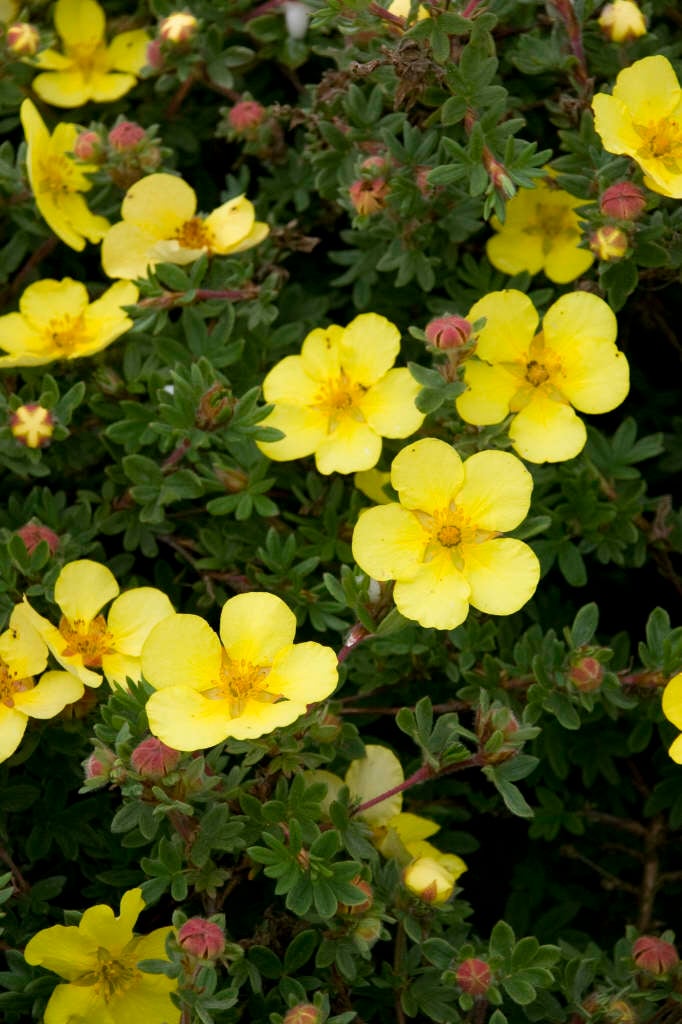Potentilla fruticosa (Sulphurascens Group) 'Elizabeth'
shrubby cinquefoil 'Elizabeth'
A spreading deciduous shrub to 90cm tall, with pinnate grey-green leaves and primrose yellow flowers from late spring to early autumn
Synonyms
Potentilla fruticosa 'Sutter's Gold'Potentilla 'Elizabeth'
see morePotentilla arbuscula misapplied
Potentilla fruticosa var. arbuscula misapplied
Size
Ultimate height
0.5–1 metresTime to ultimate height
5–10 yearsUltimate spread
0.5–1 metresGrowing conditions
Moisture
Moist but well–drained, Well–drainedpH
Acid, Alkaline, NeutralColour & scent
| Stem | Flower | Foliage | Fruit | |
| Spring | Yellow | Green | ||
|---|---|---|---|---|
| Summer | Yellow | Green | ||
| Autumn | Yellow | Green | ||
| Winter |
Position
- Full sun
- Partial shade
Aspect
South–facing or East–facing or North–facing or West–facing
Exposure
Exposed or Sheltered Hardiness
H7Botanical details
- Family
- Rosaceae
- Native to GB / Ireland
- No
- Foliage
- Deciduous
- Habit
- Bushy
- Potentially harmful
- Fruit are ornamental - not to be eaten. Wear gloves and other protective equipment when handling. Pets: Fruit are ornamental - not to be eaten - see the HTA guide to potentially harmful plants for further information and useful contact numbers
- Genus
Potentilla can be herbaceous perennials, deciduous shrubs, or annuals, with palmately or pinnately divided leaves and solitary or clustered, saucer-shaped, 5-petalled flowers appearing over a long period
- Name status
Accepted
- Plant range
- Himalaya, W China
How to grow
Cultivation
Easy to grow well in most soils but flowers fade more rapidly in full sun and last longer in moister soils
Propagation
Propagate by softwood cuttings in early summer
Suggested planting locations and garden types
- Coastal
- City and courtyard gardens
- Cottage and informal garden
- Gravel garden
- Rock garden
- Wildlife gardens
- Banks and slopes
- Flower borders and beds
Pruning
Pests
Generally pest-free
Diseases
May be susceptible to honey fungus
Get involved
The Royal Horticultural Society is the UK’s leading gardening charity. We aim to enrich everyone’s life through plants, and make the UK a greener and more beautiful place.
